Available courses
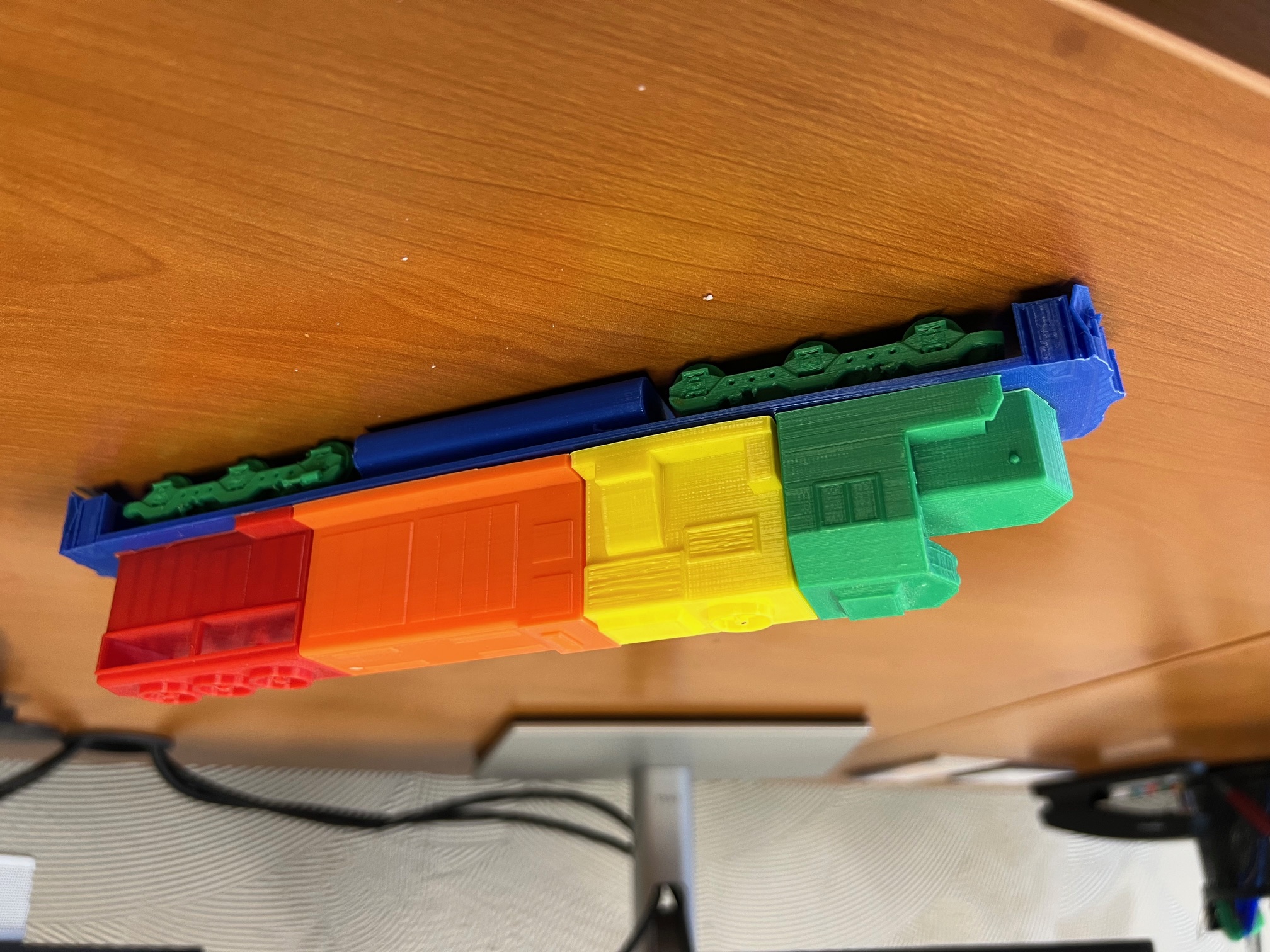
This website presents the results of an FRA project to develop and document new rail-themed K-12 STEM (science, technology, engineering and mathematics) distance learning activities
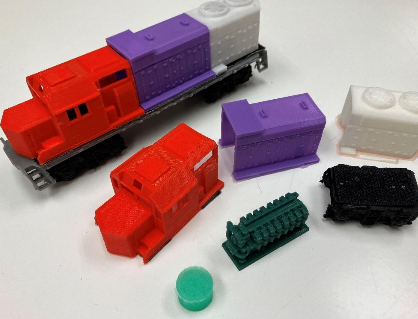
The activities in this course will help raise K-12 student awareness of railway transportation careers, provide another avenue for reaching students from underrepresented groups, and help secure a diverse future railroad workforce.
- Teacher: Pasi Lautala
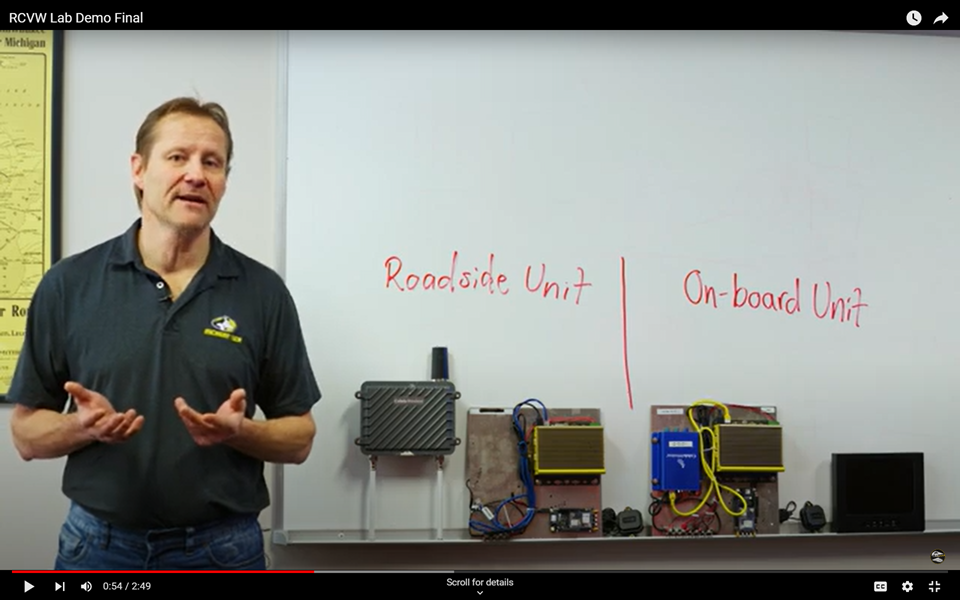
This module describes technical details of the RCVW system.
The RCVW project supports strategic objective FRA-IRS-002, Connected Vehicle Technology Demonstrations.
The main objective is to promote the technology transfer of the Rail Crossing Violation Warning (RCVW) system. The project team will plan, promote, and execute a comprehensive demonstration of the RCVW system through strategic field and virtual demonstrations that showcase the potential safety benefits of the connected vehicle technology for engagement of rail and highway industry stakeholders.
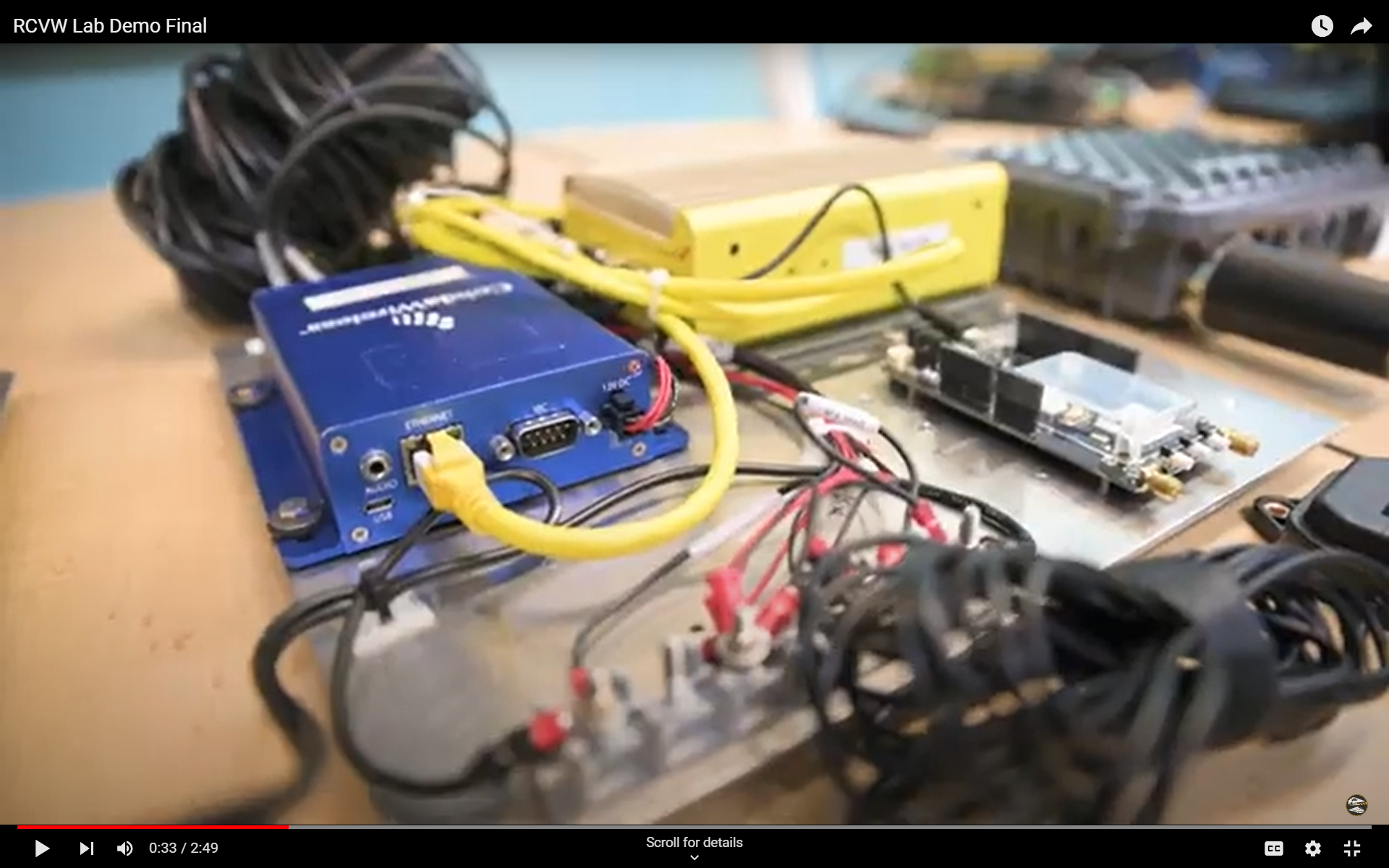
- Teacher: Pasi Lautala
- Teacher: John Velat
A Sandbox for John Velat
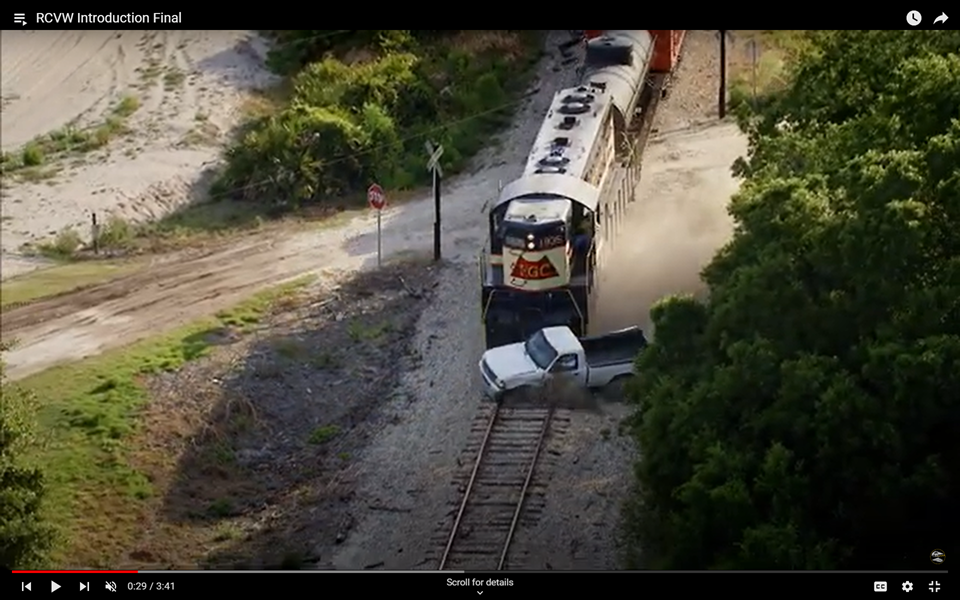
This module introduces the Railroad Crossing Violation Warning (RCVW) project.
The RCVW project supports strategic objective FRA-IRS-002, Connected Vehicle Technology Demonstrations.
The main objective is to promote the technology transfer of the Rail Crossing Violation Warning (RCVW) system. The project team will plan, promote, and execute a comprehensive demonstration of the RCVW system through strategic field and virtual demonstrations that showcase the potential safety benefits of the connected vehicle technology for engagement of rail and highway industry stakeholders.
![]()
![]()
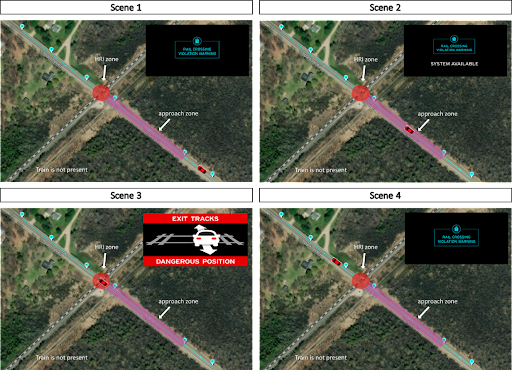
- Teacher: Pasi Lautala
Since its initial offering in 2008, the objective of the Railroad Engineering Education Symposium (REES) has been to develop interest among university faculty in railroad transportation engineering, eith the goal of facilitating and supporting their interest in adding railroad engineering content to their engineering courses and curricula.

The American Railway Engineering and Maintenance-of-Way Association (AREMA) is the railway industry’s professional organization that, among its other goals, promotes railway engineering education. In response to this challenge, AREMA’s Education and Training Committee developed the Railway Engineering Education Symposium (REES). REES is intended to foster interest among university faculty in railway engineering with the goal of encouraging and supporting their interest in adding railway engineering content to their current engineering courses and curricula. The inaugural REES was held in June 2008, at the University of Illinois at Urbana-Champaign in Urbana, Illinois.
REES 2016 was part of The Railway
Academic Conference (TRAC) on July 12-14 at the University of Illinois
at Urbana-Champaign (UIUC), in conjunction with the annual meeting of
the National University Rail Center (NURail). The seven introductory
REES content modules are available online for downloading and review
prior to the event. REES modules related to civil, electrical and
mechanical engineering were presented on July 12.
Organized since 2013, Michigan Rail Conference returned to the Upper Peninsula for its 10th Anniversary.
The theme for the event was "Pivot for Growth: Supply Chain and Mobility".
Our Keynote Speaker, Jennifer Mitchell, the new FRA Deputy Administrator provided an outstanding presentation, anchoring the panel discussions in the morning plenary and the afternoon breakouts.
When we determined our conference theme, Sustaining Midwest Rail, we did not anticipate how well it would fit the current conditions. Like many other businesses, both within and outside the US, the focus of rail transportation shifted almost overnight from “growth” to “sustaining” in this age of a new normal ... whatever that may be!
Our program reflects this disruption and the response of the rail sector to these unprecedented times. It brings together different stakeholders for a conversation about where we go next and how we need to reconsider our strategies for sustaining and developing rail transport in the Midwest, and nationwide.

The 2017 Midwest Rail Conference "Midwest Connections: Passenger and
Freight Rail Look to the Future" will be held August 15-17, 2017 in
Kalamazoo, MI. Co-Partnered with TRB AR040 and NURail.

A (High Speed) Rail Workforce Development Symposium, was held in conjunction with the AREMA 2012 Annual Conference and Exposition in Chicago, IL. The symposium was also simulcast via the web and had 10 presenters in various topics. The goal of the symposium was to improve understanding of the needs for the HSR workforce and related education and training.
The symposium introduced the HSRLS project to participants and had two main topics. The first topic had presentations on high speed rail workforce development needs in the U.S. and abroad. The second topic included presentations related to the use of online technologies in collaborative education and training.
The course available in the portal includes video recordings and presentations by symposium speakers. It also provides supplementary materials on selected topics.
Time to Complete: ~3.5 Hours
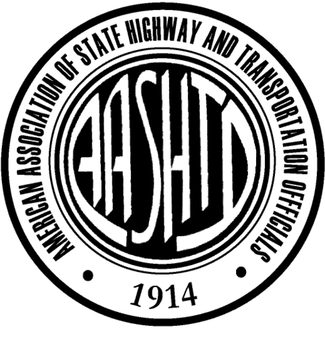
 The Standing Committee on Rail Transportation (SCORT), a committee of the American Association of State Highway and Transportation Officials (AASHTO), hosted a live webinar in October 2012 with an emphasis on workforce development for state rail employees. The webinar featured presentations from three of the state Department of Transportation (DOT) members and included an update on workforce development initiatives at the Federal Railroad Administration (FRA), Mineta Transportation Institute (MTI) and Michigan Technological University.
The Standing Committee on Rail Transportation (SCORT), a committee of the American Association of State Highway and Transportation Officials (AASHTO), hosted a live webinar in October 2012 with an emphasis on workforce development for state rail employees. The webinar featured presentations from three of the state Department of Transportation (DOT) members and included an update on workforce development initiatives at the Federal Railroad Administration (FRA), Mineta Transportation Institute (MTI) and Michigan Technological University.
Video recordings and presentations by webinar speakers are available as modules in this course.
Time to Complete: ~2 Hours
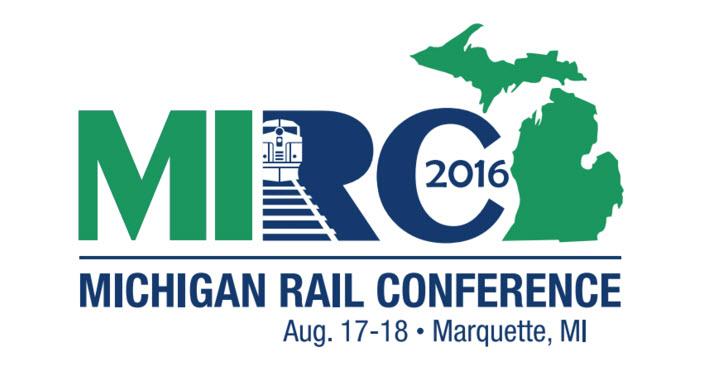
The 4th Annual Michigan Rail Conference took place on August 17-18, 2016 at the Northern Michigan University (NMU) in Marquette.
This was the first time for the conference to be held in the Upper Peninsula of Michigan and it broke all expectations with a record of 160 participants. The conference received support from fourteen sponsoring agencies/companies.
As in the past conferences, the organization was led by the Michigan Tech’s Rail Transportation Program (RTP), under guidance from Conference Planning Committee (see list below).
Additional support was received from the Michigan Department of Transportation and the National University Rail Center (NURail).
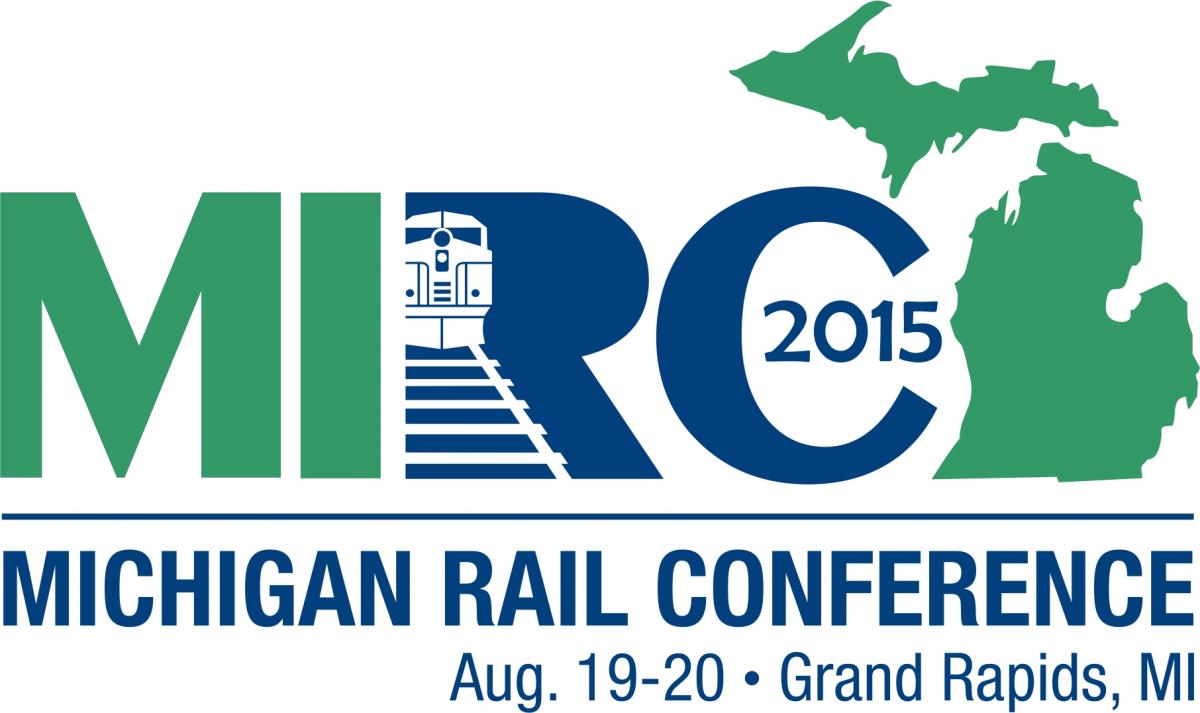
Third Annual Michigan Rail Conference
The Michigan DoT and the Rail Transportation Program at Michigan Technological University hosted the second annual Michigan Rail Conference on August 19th and 20th at Grand Valley State University.
Over 70 conference participants came to Grand Rapids early for field visits that included two grade crossing improvement projects, the SteelPro Grand Rapids Steel Distribution Center, the Grand Elk Railroad transload terminal and the Grand Rapids Amtrak station.
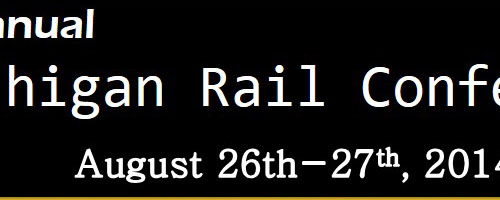
Second Annual Michigan Rail Conference
The Michigan DoT and the Rail Transportation Program at Michigan Technological University hosted the second annual Michigan Rail Conference on August 26th and 27th at South Campus of Macomb Community College.
The first day of the conference featured a variety of speakers on a variety of topics including both freight and passenger rail.
The second day saw participants visiting rail areas in and around Detroit.
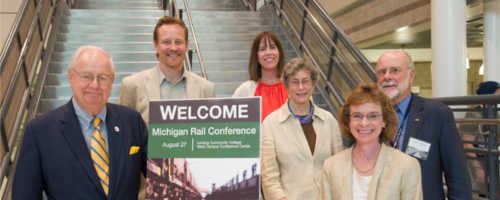
First Annual Michigan Rail Conference - Michigan DOT and the Rail Transportation Program at Michigan Technological University hosted the first annual Michigan Rail Conference on August 27 at the Lansing Community College, West Campus. Nearly 150 individuals attended the event in person, and another 50 participated by live web-cast. The morning featured a variety of plenary speakers including welcome notes from both the State House and Senate Transportation Committee Chairs, and a keynote address by Tom Carper from AMTRAK. The afternoon featured break-out sessions for passenger and freight rail activities.

About This Course
In this course, we'll examine some of the considerations of high speed rail management, particularly as it relates to U.S. HSR initiatives. This course is based on materials provided by Mineta Transportation Institute and is taught by MTI's own Stan Feinsod, who has more than 25 years experience as a manager of rail operations and has consulted on the California High Speed Rail Project.
We'll first discuss policies and programs within the United States relating to HSR, including the American Recovery and Reinvestment Act and the Passenger Rail Investment and Improvement Act. We'll then take a look at some advanced HSR technologies used abroad. Finally, we'll consider the environmental and economic impacts of HSR systems.
Course Format
This blended learning course will feature 3 live sessions on topics related to HSR systems management. Each session will feature a live lecture given via webinar, broadcast via Adobe Connect. The lecture will have an accompanying reading assignment. The reading assignment should be completed before the lecture session. Students are encouraged to discuss the week's reading assignments with their peers using the HSRLS forums.
Each lecture will begin at 1PM EDT and will run for about an hour. After each lecture, there will be a question-and-answer session.
- Session 1: Sept 9th - Current US Policies and Programs related to HSR
- Session 2: Sept 16th - HSR Advanced Technologies
- Session 3: Sept 24th - Environmental and Economic Considerations for HSR
Objectives
- Class discussion of each topic
- Examine the current state of HSR in the United States and learn the challenges facing the U.S. HSR program
- Learn more about the technologies and infrastructure of world-wide HSR projects
- Consider the benefits and impact of HSR systems on the environment
- Learn about HSR economical considerations
Time to Complete
About 10 Hours
~3.5 Hours from lectures
~3 Hours from reading materials
~3.5 Hours devoted to the writing assignment

About This Course
Welcome to HSR103: High Speed Rail Advanced Technologies. This course is part of the Introduction to High Speed Rail category, along with HSR101 and HSR102. If you haven't already, we recommend completing HSR101 and HSR102 before you attemp this course. Some of the terminology and concepts used in this course are introduced in earlier courses.
This course is provided and narrated by Tsung-Chung (TC) Kao of the University of Illinois. Dr. Tsung-Chung Kao holds a B.S. in civil engineering from National Taiwan University (1971), an M.S. in structural engineering from Rutgers University (1974), and an M.S. and Ph.D. in geotechnical engineering from the University of California at Berkeley. He is a licensed professional engineer in California and Taiwan.
Course Format
This asynchronous course features video presentations narrated by TC Kao. It is broken down into modules beginning with an examination of high speed Rolling Stock, followed by HS Planning, and finally Construction of high speed rail systems.
Each module is accompanied by a quiz and supplementary reading materials. The quizzes are based on the video lectures alone. The supplementary reading is not mandatory reading, but it is very informative. If you find yourself wanting to know more, these resources are an excellent place to start.
Objectives
- Examine high speed rolling stock in depth.
- Consider the intensive planning process required by HSR systems
- Learn more about the construction and maintenance of HSR systems
Time to Complete
About 6.5 Hours
~3.5 Hours from lectures
~2 Hours from reading materials
~1 Hour from quizzes
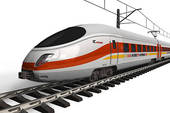
About This Course
In this course, we'll examine some of the considerations of high speed rail management, particularly as it relates to U.S. HSR initiatives. This course is based on materials provided by Mineta Transportation Institute and is taught by MTI's own Stan Feinsod, who has more than 25 years experience as a manager of rail operations and has consulted on the California High Speed Rail Project.
We'll first discuss policies and programs within the United States relating to HSR, including the American Recovery and Reinvestment Act and the Passenger Rail Investment and Improvement Act. We'll then take a look at some advanced HSR technologies used abroad. Finally, we'll consider the environmental and economic impacts of HSR systems.
Course Format
This blended learning course will feature 3 live sessions on topics related to HSR systems management. Each session will feature a live lecture given via webinar, broadcast via Adobe Connect. The lecture will have an accompanying reading assignment. The reading assignment should be completed before the lecture session. Students are encouraged to discuss the week's reading assignments with their peers using the HSRLS forums.
Each lecture will begin at 1PM EDT and will run for about an hour. After each lecture, there will be a question-and-answer session.
- Session 1: August 12th - Current US Policies and Programs related to HSR
- Session 2: August 19th - HSR Advanced Technologies
- Session 3: August 26th - Environmental and Economic Considerations for HSR
Objectives
- Class discussion of each topic
- Examine the current state of HSR in the United States and learn the challenges facing the U.S. HSR program
- Learn more about the technologies and infrastructure of world-wide HSR projects
- Consider the benefits and impact of HSR systems on the environment
- Learn about HSR economical considerations
Time to Complete
About 10 Hours
~3.5 Hours from lectures
~3 Hours from reading materials
~3.5 Hours devoted to the writing assignment
This course is designed to be a general, high level overview of high speed rail and HSR services. This course is a stepping stone to help you get familiar with HSR and the High Speed Rail Learning System. You will explore rail and HSR terminology, check out what countries abroad have done with HSR, and see what plans there are for HSR services in the United States.
This course is also used to demonstrate a couple of interactive technologies: Javascript and Flash. You will need a browser enabled with both to experience all of the content.
Time to Complete: ~5 Hours
This course is meant to provide the basic fundamentals necessary to analyze and plan new or renovated railroad service and infrastructure.
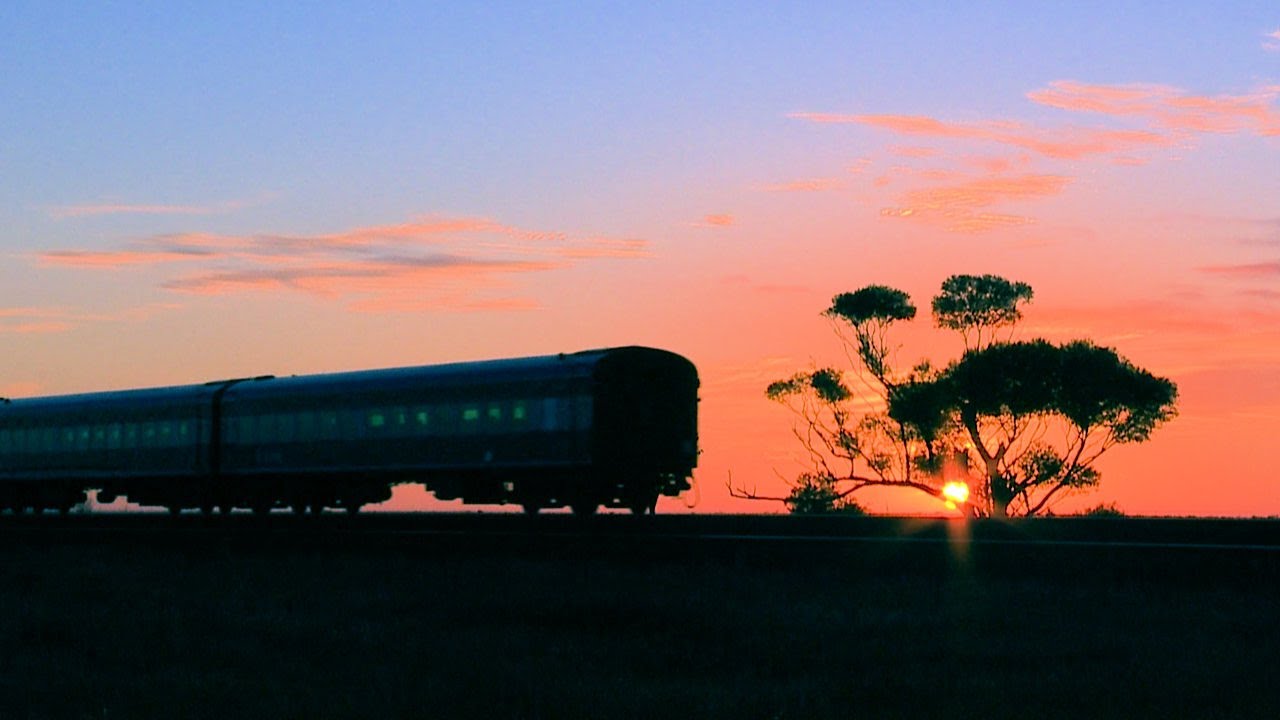
For Federal Railroad Administration grantees, the lessons contained within this course will introduce basic railroad concepts related to train types, performance, track configuration, basic operations, and signaling systems. This series is invaluable for grantees planning and designing new and improved rail services.
- Teacher: Joseph E Riley